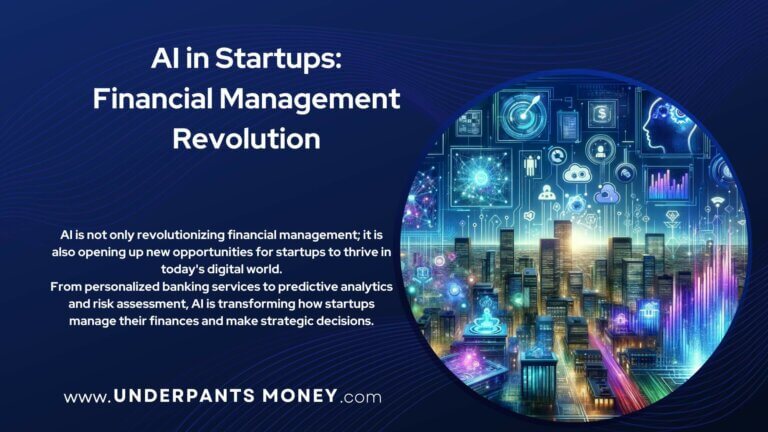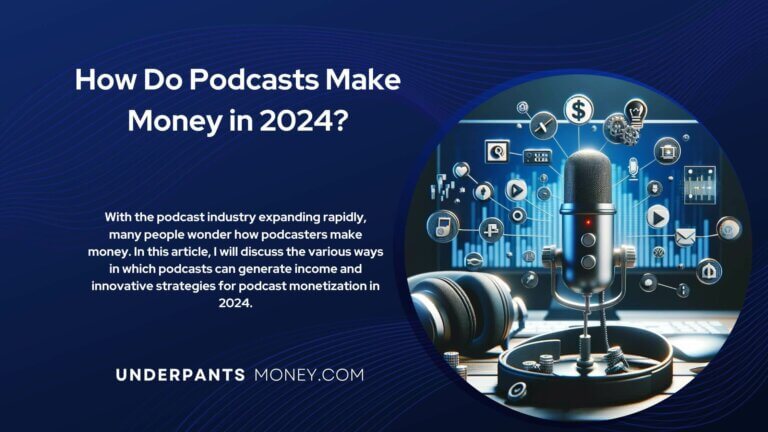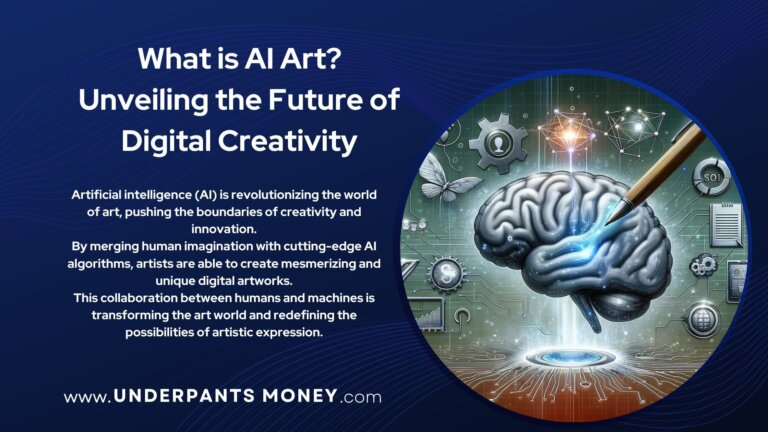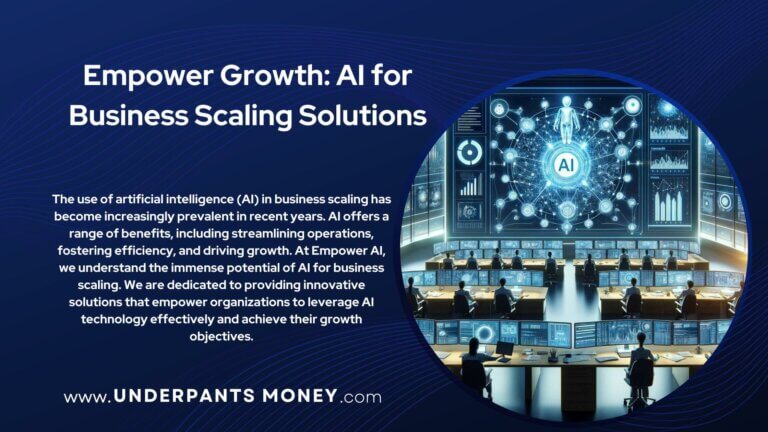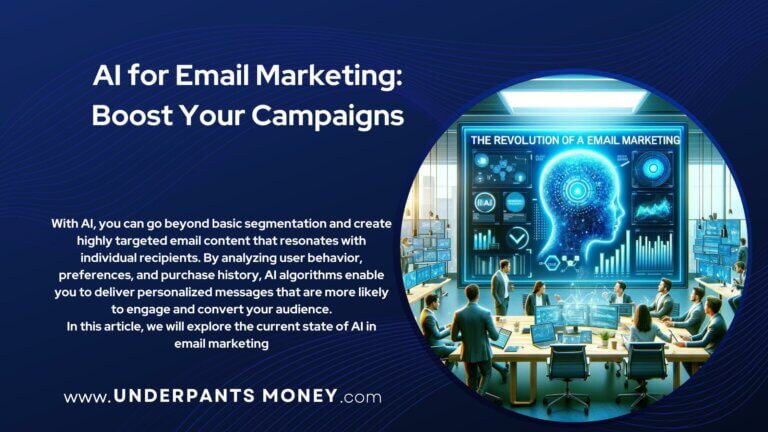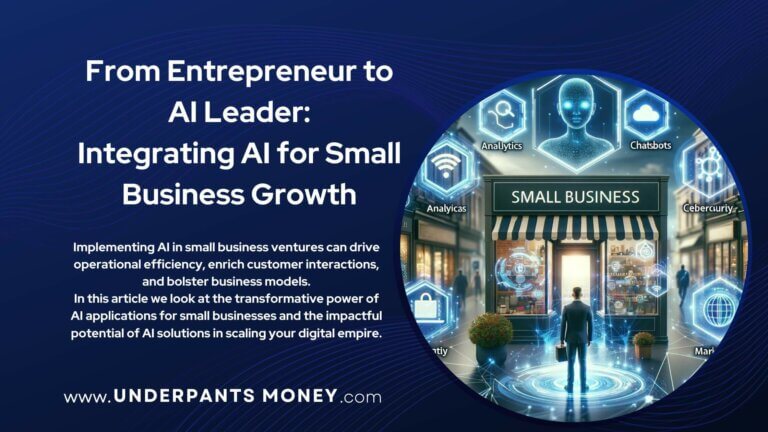What Problems Can AI Solve? A Look at Real-World Applications
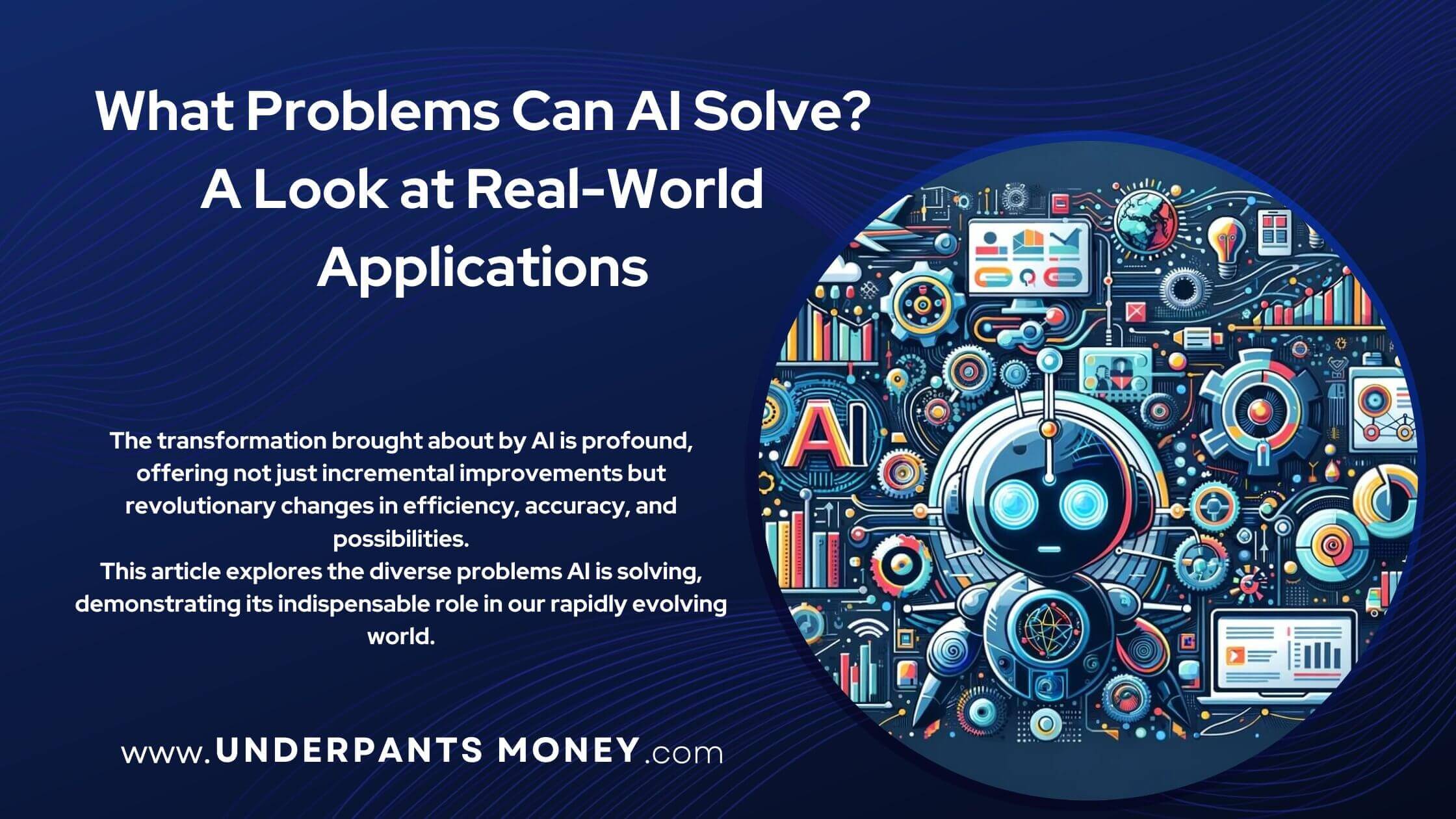
Introduction to AI and Its Capabilities
Artificial Intelligence (AI) is no longer a futuristic concept; it’s a present-day marvel reshaping how we live, work, and solve complex problems. From its humble beginnings as a theoretical pursuit, AI has evolved into a powerhouse capable of processing vast amounts of data, learning from it, and making decisions or predictions that were once exclusive to human intelligence. This versatility allows AI to address some of the most pressing challenges of our time.
AI systems, through machine learning and deep learning, can recognize patterns, understand languages, and even perceive emotions, leading to innovations across various fields. These range from healthcare, where AI aids in early disease detection, to environmental science, where it’s used to track and combat climate change. In finance, AI contributes to more robust economic models and fraud detection systems, while in everyday life, it powers smart home devices and personal assistants.
The transformation brought about by AI is profound, offering not just incremental improvements but revolutionary changes in efficiency, accuracy, and possibilities. This article explores the diverse problems AI is solving, demonstrating its indispensable role in our rapidly evolving world.
Key Takeaways
- AI in Healthcare: AI is revolutionizing healthcare by improving diagnostics, enabling personalized medicine, and enhancing patient care.
- AI and the Environment: AI contributes significantly to environmental conservation, aiding in climate change analysis, sustainable urban planning, and efficient waste management.
- AI in Finance and Economics: In the financial sector, AI is pivotal in forecasting, fraud detection, personalized banking services, risk management, and automated trading.
- AI in Daily Life: AI enhances everyday life through smart homes, virtual personal assistants, entertainment, transportation, and education, making daily routines more efficient and personalized.
- The Future of AI: AI’s potential is vast and evolving, promising technological advancement along with significant social and economic benefits, necessitating responsible and ethical use.
Healthcare Innovations
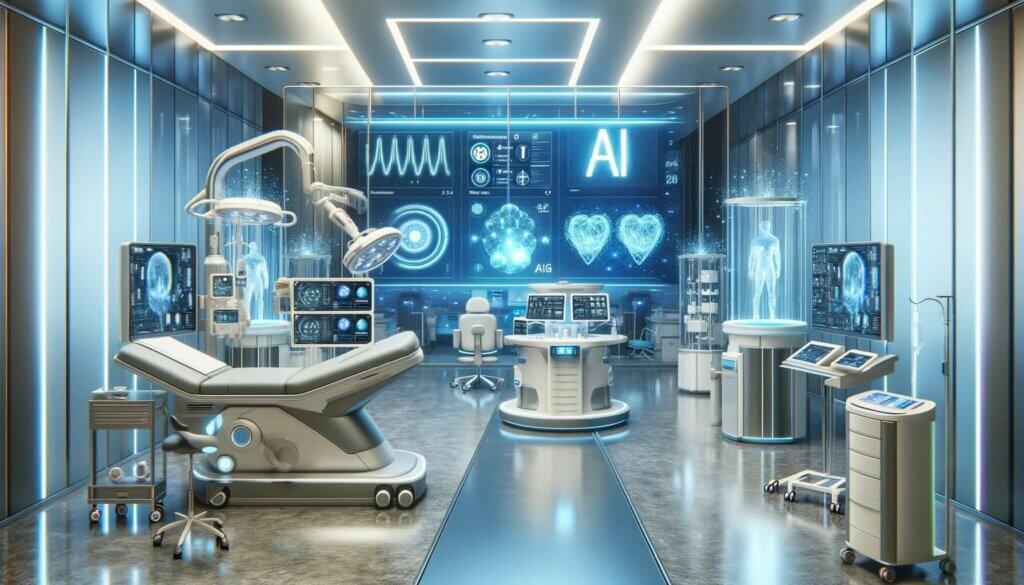
One of the most significant arenas where AI is making a profound impact is in healthcare. AI’s ability to analyze large datasets is revolutionizing how medical professionals diagnose and treat diseases. Here are some key areas where AI is changing healthcare:
Early Disease Detection
AI algorithms are now capable of identifying patterns in medical imaging, such as X-rays, MRIs, and CT scans, with a precision that matches or even surpasses human experts. For instance, AI systems have been instrumental in the early detection of cancers, often identifying subtle changes that the human eye might miss. A study published in Nature demonstrated that an AI model could outperform radiologists in breast cancer screening accuracy.
Personalized Medicine
AI is paving the way for personalized medicine, where treatments are tailored to the individual patient based on their unique genetic makeup and lifestyle factors. By analyzing vast amounts of data from various sources, AI can help predict which treatments will be most effective for specific patients, reducing the trial-and-error approach often seen in medicine.
Drug Development
The drug development process is notoriously lengthy and costly. AI is helping to streamline this process by quickly analyzing compounds and predicting their effectiveness, which can significantly reduce the time and cost of bringing new drugs to market. An article in Nature Biotechnology highlights how AI accelerates drug discovery, potentially transforming the pharmaceutical industry.
Robotic Surgery
AI is also enhancing surgical precision through robotic surgery systems. These systems provide surgeons with enhanced visualization, increased precision, and greater control, leading to less invasive procedures, reduced complications, and quicker patient recovery times.
Managing Patient Data
AI is essential in managing the enormous volume of patient data generated in healthcare settings. Through AI, this data can be analyzed to provide insights into patient health trends, improve hospital operational efficiency, and even predict future health crises or outbreaks.
In conclusion, AI is a game-changer in healthcare, offering innovative solutions for early disease detection, personalized treatments, and efficient patient data management. It is transforming the healthcare landscape, promising better outcomes for patients worldwide.
Environmental Solutions
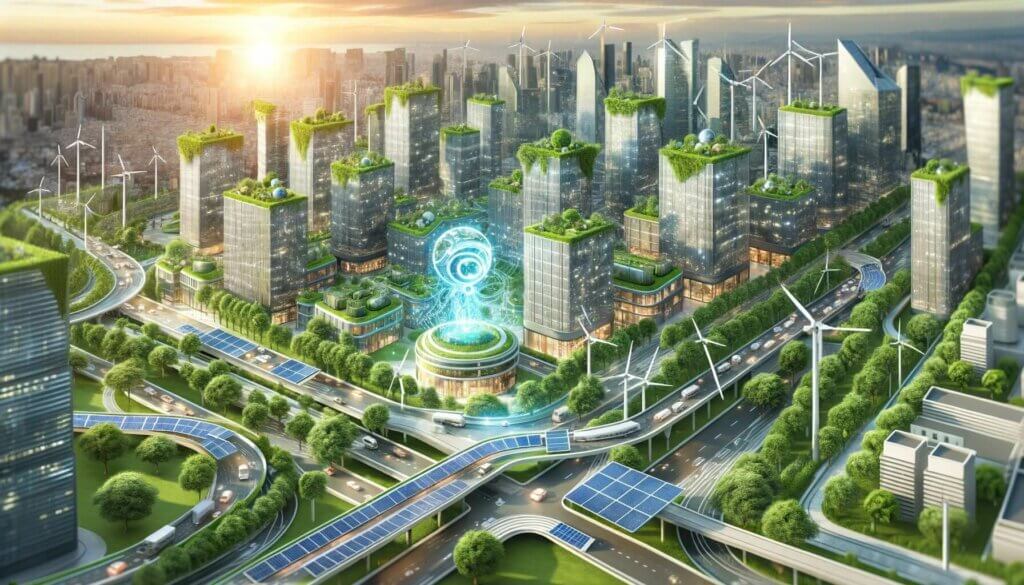
AI’s Role in Combating Climate Change
AI is proving to be a crucial tool in the battle against climate change. It helps in analyzing climate data, predicting weather patterns, and optimizing renewable energy usage. For instance, AI algorithms can forecast solar and wind power generation, enabling more efficient use of these energy sources. AI also aids in monitoring deforestation and wildlife populations, providing valuable data for conservation efforts.
Sustainable Urban Planning
AI is instrumental in creating smarter, more sustainable cities. Through data analysis, AI assists in optimizing traffic flow, reducing congestion, and lowering emissions. It also plays a role in energy-efficient building design and urban planning, helping cities reduce their carbon footprint.
Waste Management and Recycling
In waste management, AI is used to sort and recycle waste more efficiently, significantly reducing the amount of waste that ends up in landfills. AI-powered systems can identify and sort different types of recyclable materials, improving recycling rates and efficiency.
Air and Water Quality Monitoring
AI systems are deployed to monitor air and water quality, quickly identifying pollutants and their sources. This real-time data is crucial for taking timely actions to protect public health and the environment.
Agricultural Efficiency
AI enhances agricultural practices by optimizing resource use and reducing waste. It helps in precision farming — using data to determine the exact amount of water, fertilizers, and pesticides needed, thus minimizing environmental impact.
AI’s applications in environmental solutions showcase its potential to create a more sustainable and healthier planet. It’s not just about technology; it’s about harnessing AI to build a better future for the next generations.
Advancements in Finance and Economics

AI in Financial Forecasting
AI has dramatically transformed the financial industry by enabling more accurate and timely forecasting. By analyzing vast datasets, AI can identify trends and patterns that humans might overlook, leading to more precise market predictions. This capability is especially valuable in stock market trading, where AI algorithms can analyze market data in real time to guide investment decisions.
Fraud Detection and Prevention
One of AI’s most significant contributions to finance is in fraud detection. AI systems can monitor transaction data for unusual patterns, flagging potential fraud cases much faster than traditional methods. This not only helps in catching fraudulent activities but also in preventing them. For example, banks use AI to detect anomalies in credit card transactions, significantly reducing the incidence of credit card fraud.
Personalized Banking Services
AI enables banks and financial institutions to offer personalized services to their customers. By analyzing customer data, AI can provide customized financial advice, recommend products, and even predict future financial needs. This personalization enhances customer satisfaction and loyalty.
Risk Management
AI plays a crucial role in assessing and managing risks in the financial sector. It can predict loan defaults, assess creditworthiness, and evaluate investment risks, making the financial system more robust and stable.
Automated Trading
AI has led to the rise of automated trading systems, which can execute trades at a speed and volume impossible for human traders. These systems can analyze multiple markets simultaneously, making decisions based on market conditions, trends, and historical data.
AI’s integration into finance and economics is not just about efficiency; it’s about creating a more secure, personalized, and intelligent financial environment. The applications of AI in this sector are vast and continuously evolving, promising even more innovations in the future.
Enhancing Everyday Life

AI in Smart Homes
Artificial Intelligence has found its way into our homes, making daily life more convenient and efficient. Smart home devices, like thermostats, lighting systems, and security cameras, are now AI-driven. They learn from our habits and preferences to automate tasks, save energy, and provide enhanced security.
Personal Assistants
Virtual AI assistants, such as those on our phones or smart speakers, have become indispensable for many. They help manage schedules, control smart home devices, provide information, and even offer entertainment. Their ability to understand natural language and context makes interactions more intuitive and helpful.
AI in Entertainment
The entertainment sector has been revolutionized by AI. Streaming services use AI to recommend movies and music based on individual preferences. Video games are becoming more immersive and realistic, thanks to AI-driven characters and environments.
AI in Transportation
AI is making transportation safer and more efficient. From route optimization in GPS systems to the development of autonomous vehicles, AI is at the forefront of innovations in this sector. Self-driving cars, though still in development, promise to transform how we commute.
AI in Education
In education, AI is used for personalized learning experiences. AI systems can adapt to individual learning styles and pace, making education more effective and accessible. They also assist in administrative tasks, freeing up educators to focus on teaching.
AI’s integration into everyday life is making our routines smarter and our experiences more tailored to our needs. It’s not just about convenience; it’s about creating a world where technology and human life coexist seamlessly for greater well-being and efficiency.
Conclusion
Artificial Intelligence (AI) is no longer a futuristic concept but a present-day reality that is solving some of the world’s most challenging problems. In healthcare, AI is revolutionizing diagnostics and patient care. In environmental science, it’s a powerful tool in fighting climate change and promoting sustainability. The finance sector benefits from AI’s capabilities in forecasting, fraud detection, and personalized banking services. In our daily lives, AI enhances the way we live, from smart homes to entertainment and transportation.
The potential of AI is vast and continuously evolving. As we harness its power, we must also be mindful of ethical considerations and the importance of using AI responsibly. The future of AI promises not only technological advancement but also the potential for significant social and economic benefits. The power of AI lies not just in its technological capabilities but in its ability to improve lives and shape a better future.

